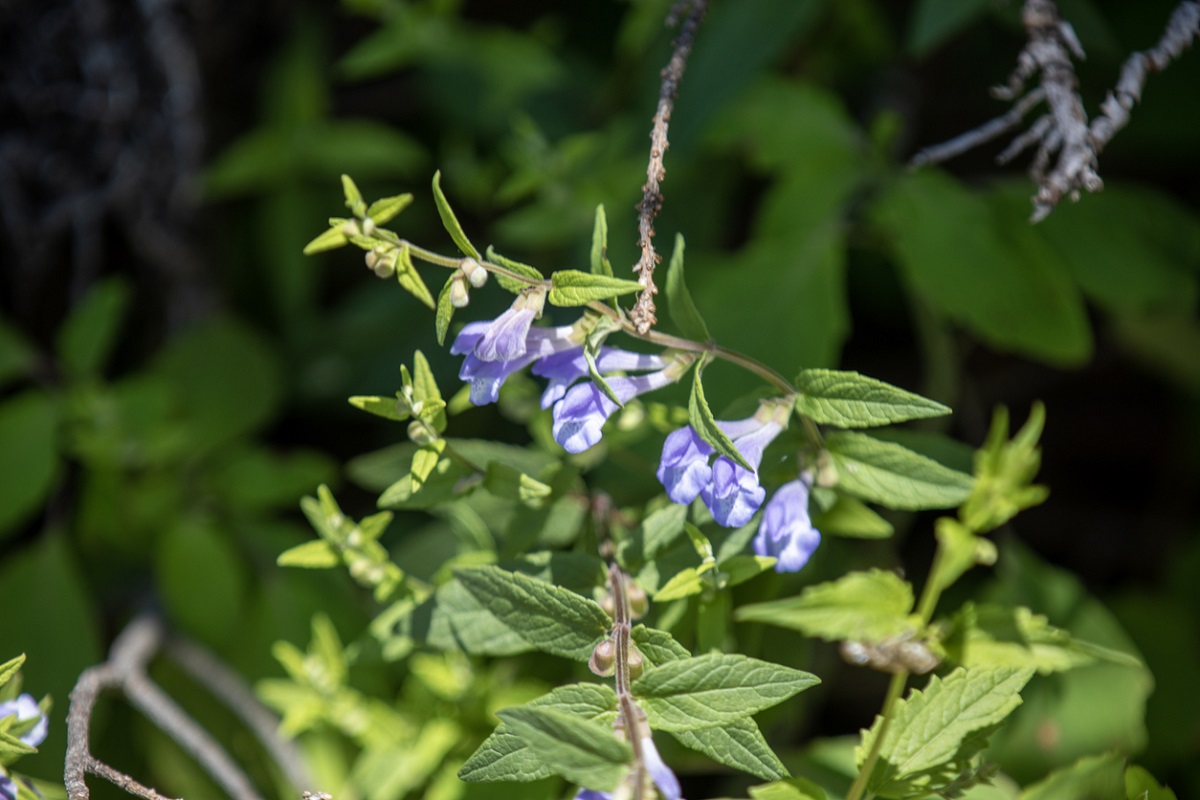
Plant’s Microevolutionary History Key to Anti-cancer Meds
February 22, 2023| |
An international collaboration of researchers led to sequencing of skullcap plant's genome. It helped identify how the plant produces a compound called scutebarbatine A that is known to act against a range of cancer cells.
The skullcap plant (Scutellaria barbata) is more commonly known in China as banzhilian. It is used for the treatment of different medical conditions in Traditional Chinese Medicine (TCM). TCM practitioners would boil the plant for two hours and dry the extract to produce a powder that has its isolated medicinal chemistry. The powder is given to patients to be taken as a decoction. Previous clinical work showed that preparations based on the skullcap plant during chemotherapy could reduce the risk of metastatic tumors in patients.
Researchers from the John Innes Centre and Chinese Academy of Scientists, with support from The Royal Society, were able to piece together the plant's genome sequence. They found that the primary metabolite has activity against cancer cells but not with cancer cells. This is vital for anti-cancer metabolites in drugs. The researchers said that the discovery could help develop a sustainable and quicker method to synthesize larger quantities of the anti-cancer compound using yeast.
Historical data shows that plant-based traditional medicines have helped modern researchers find leads for new drug discovery. Anti-cancer drugs obtained from TCM have higher efficacy and less toxic side effects than chemical synthetic drugs.
Read the scientific paper in Molecular Plant and the article from SciTechDaily to learn more.
| |
You might also like:
- Biotechnology to Support Chinese Herbs' Medicinal Claims
- Enzyme from Chinese Tallow Improves Freezing Tolerance in Oilseed Rape
- Scientists Discover Gene that Doubles Artemisinin Production in Artemisia annua Plant
Biotech Updates is a weekly newsletter of ISAAA, a not-for-profit organization. It is distributed for free to over 22,000 subscribers worldwide to inform them about the key developments in biosciences, especially in biotechnology. Your support will help us in our mission to feed the world with knowledge. You can help by donating as little as $10.
-
See more articles:
-
Plant
- Researchers Use Epigenetic Editing Technique to Fight Cassava Bacterial Blight
- Australia Allows Import and Distribution of GM Chrysanthemum
- Genomics Help Bring Climate-smart Strawberries in Warmer Regions
-
Food
- Agri Coalitions Offer Suggestions for US Biotech Framework
-
Health
- Plant’s Microevolutionary History Key to Anti-cancer Meds
-
Read the latest: - Biotech Updates (January 21, 2026)
- Gene Editing Supplement (January 28, 2026)
- Gene Drive Supplement (February 22, 2023)
-
Subscribe to BU: - Share
- Tweet

